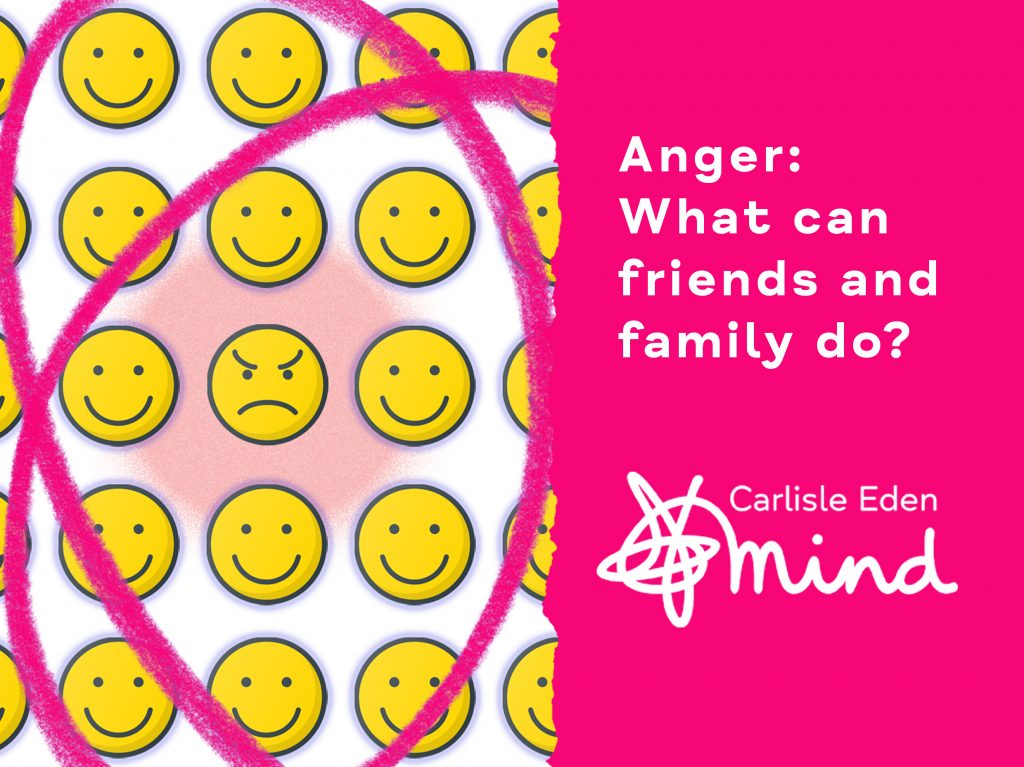
As we approach Christmas which is also dubbed the most stressful time of the year, it can be very difficult when someone you care about is experiencing problems with anger – especially if they sometimes direct that anger towards you, others close to them, or themselves.
We are all responsible for our own actions, so ultimately it will be up to them to learn how to manage and express their anger appropriately. But there are still lots of things you can do to help support them:
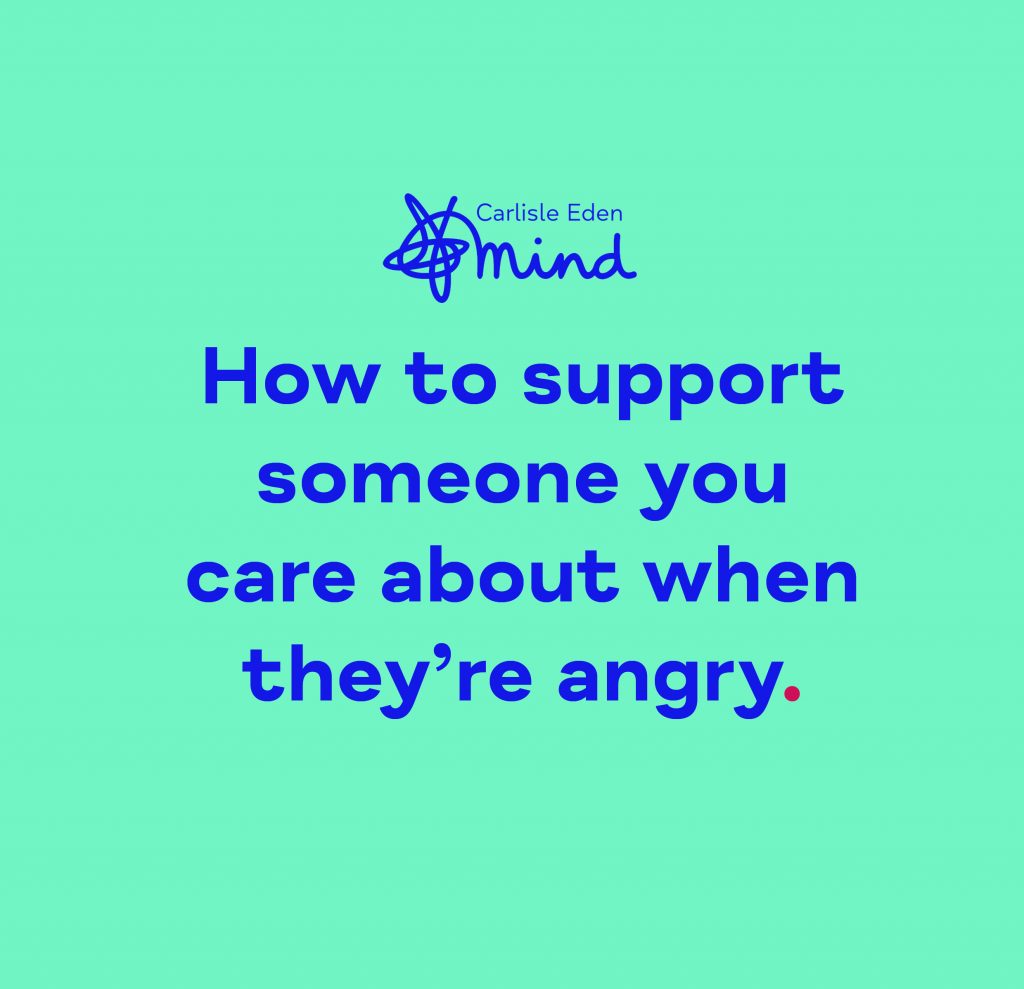
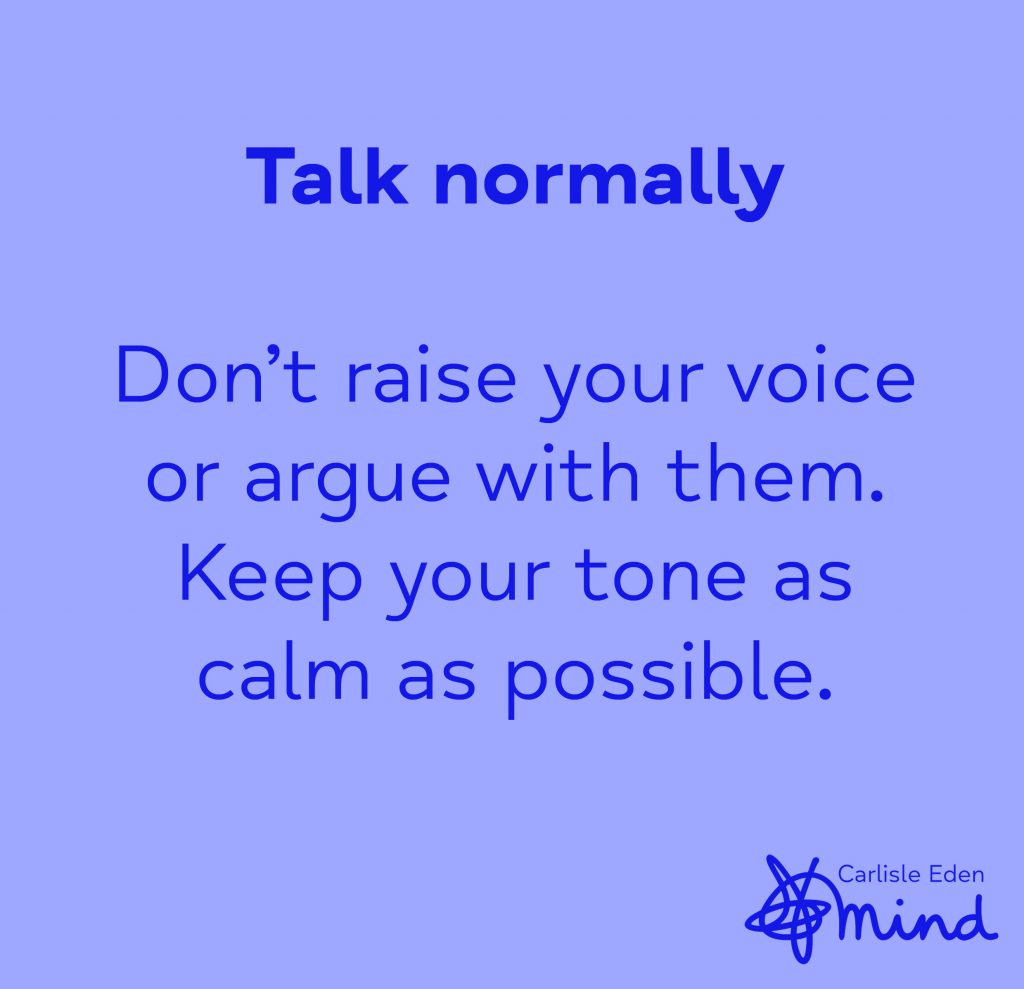
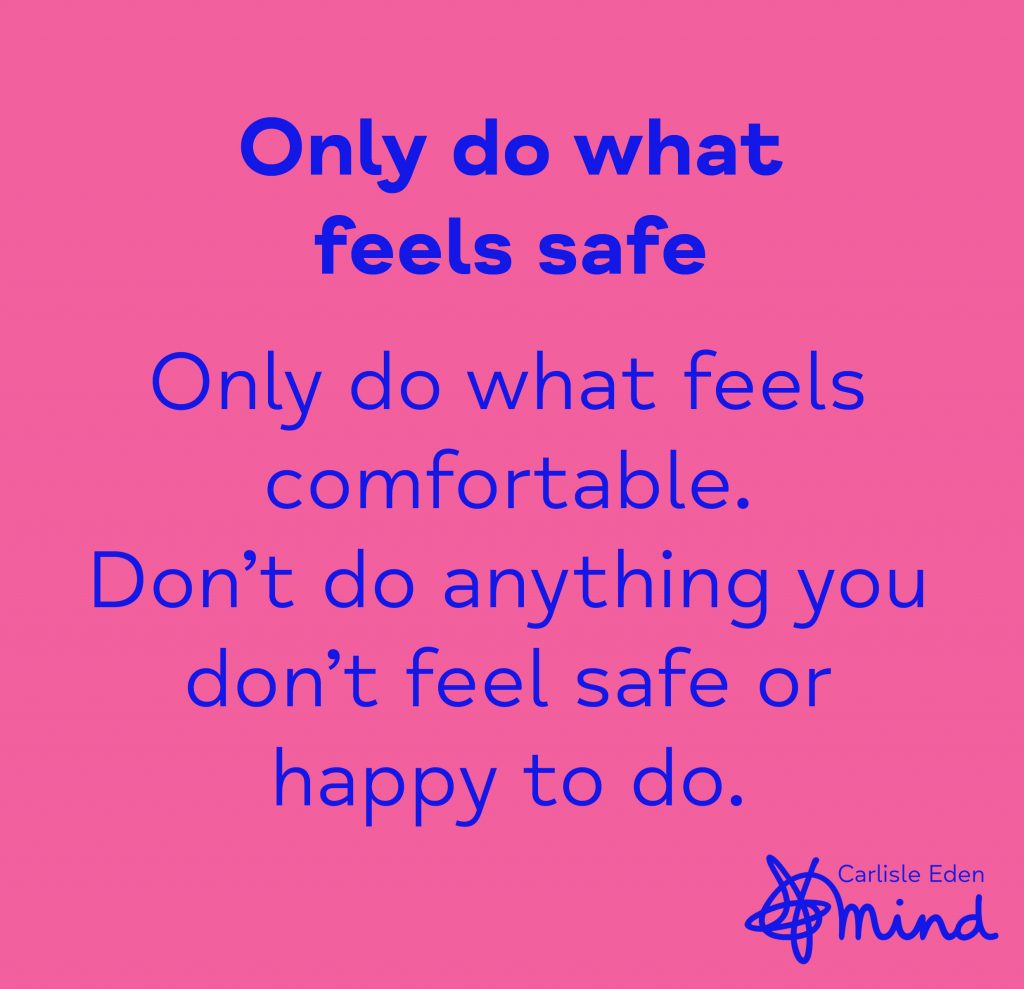
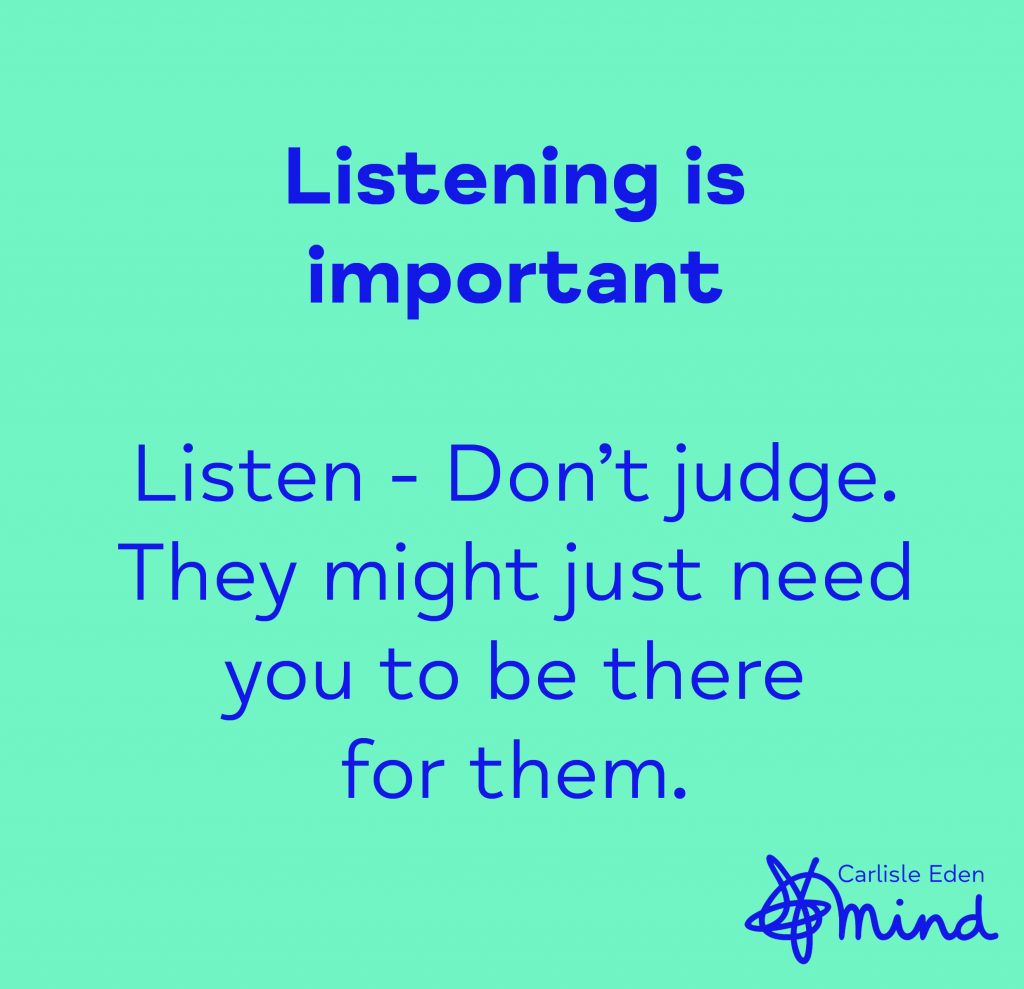
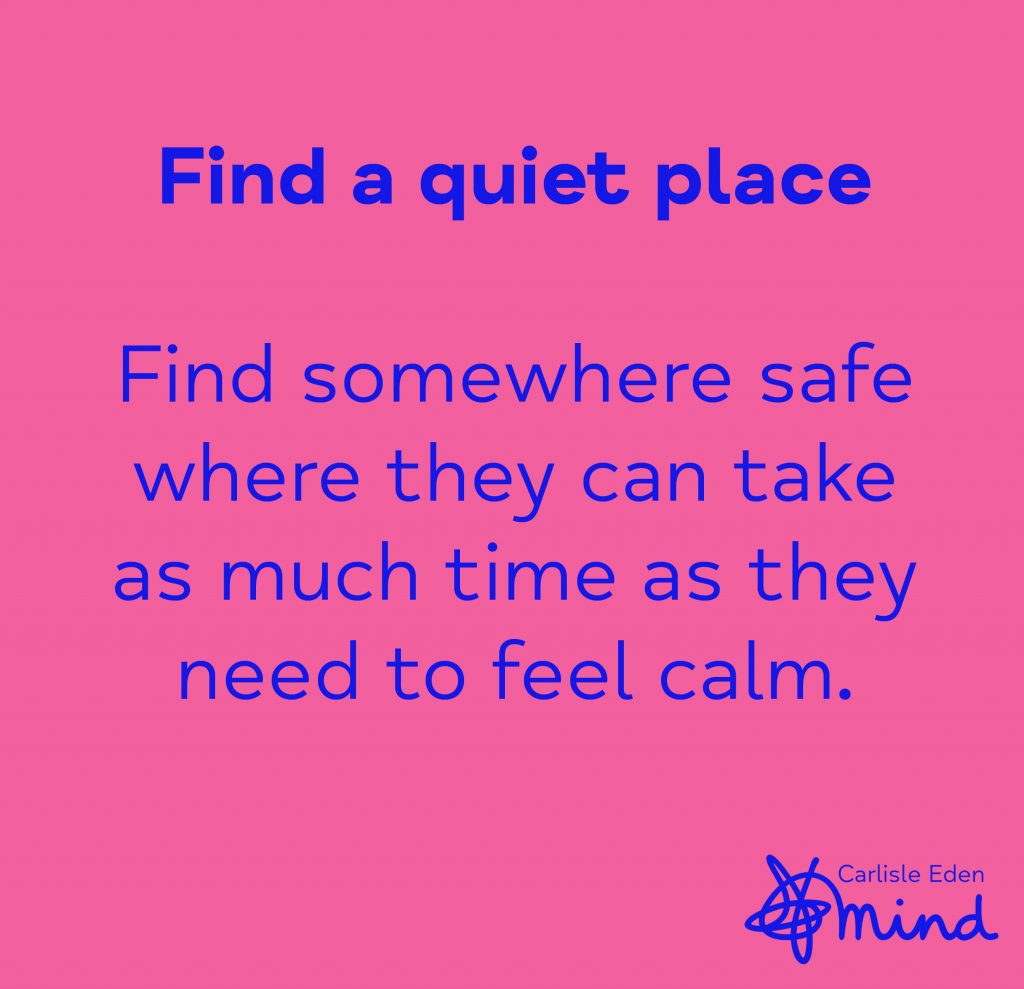
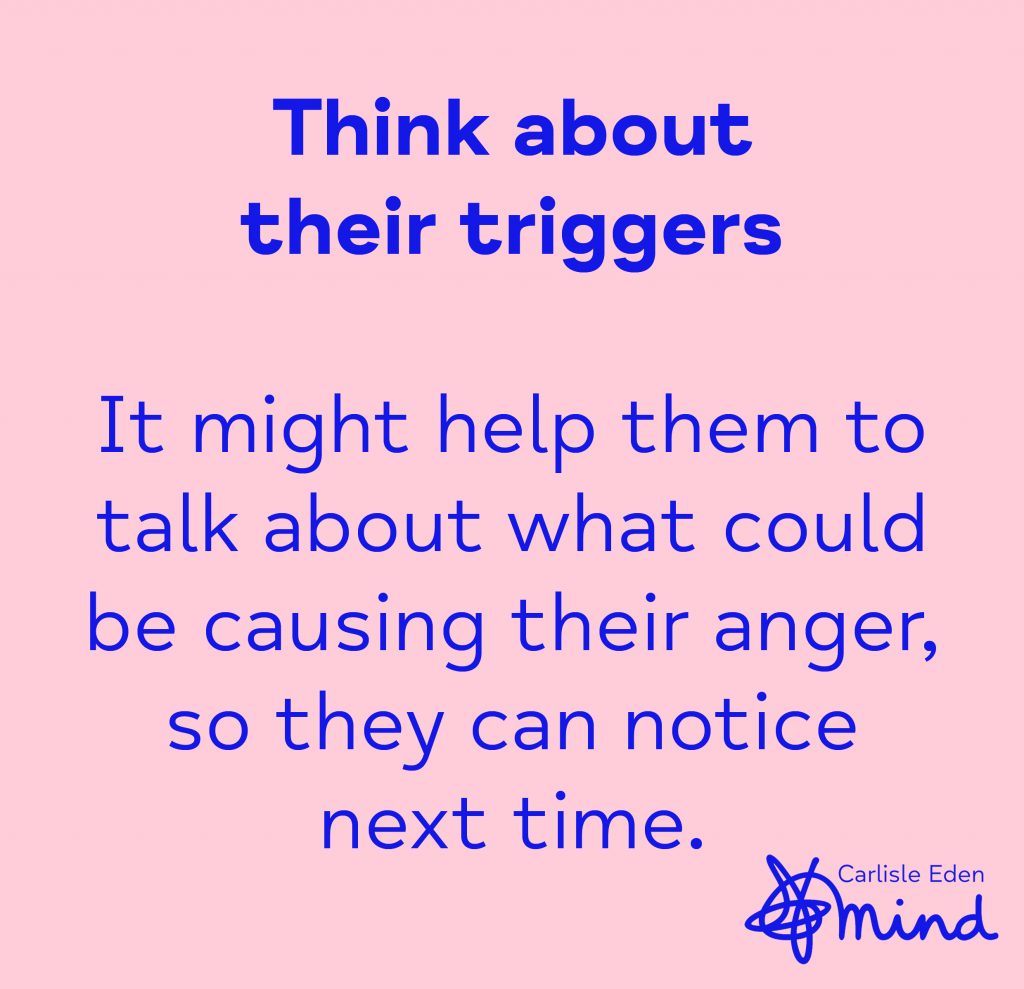
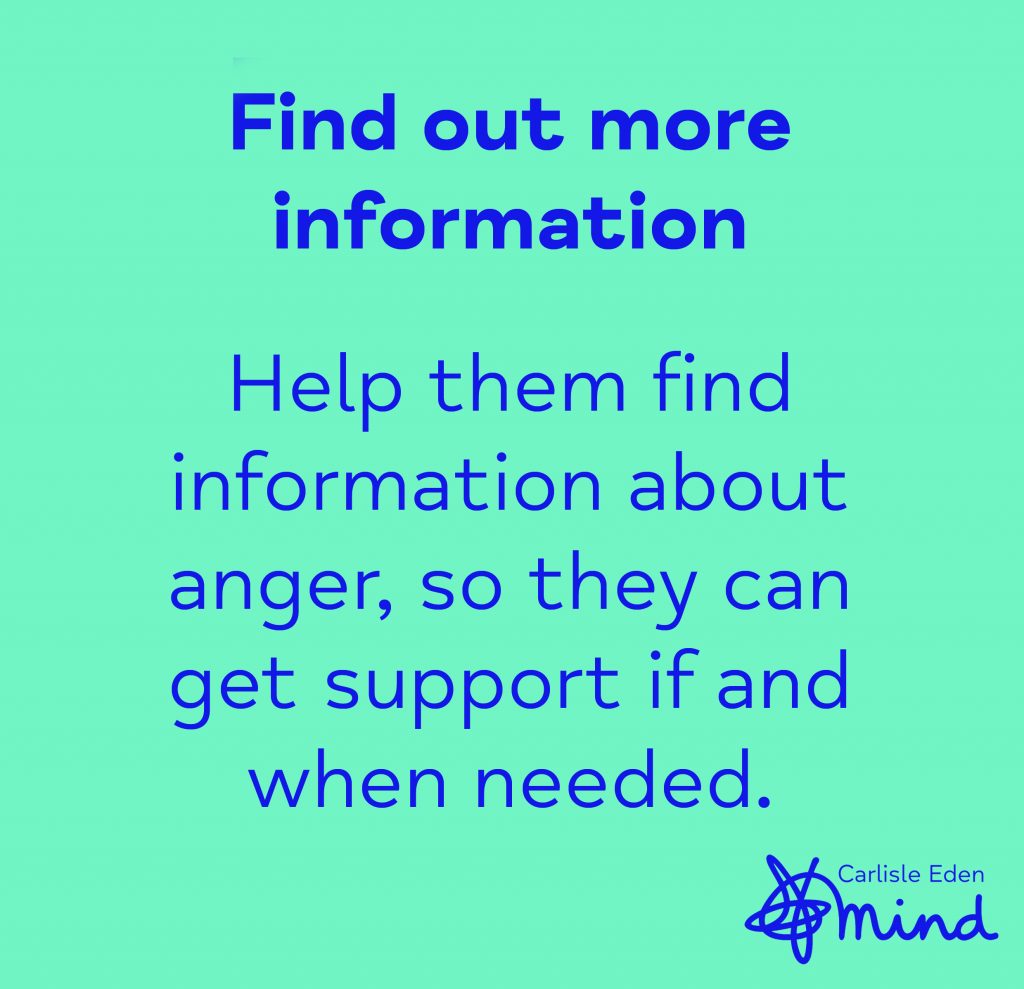
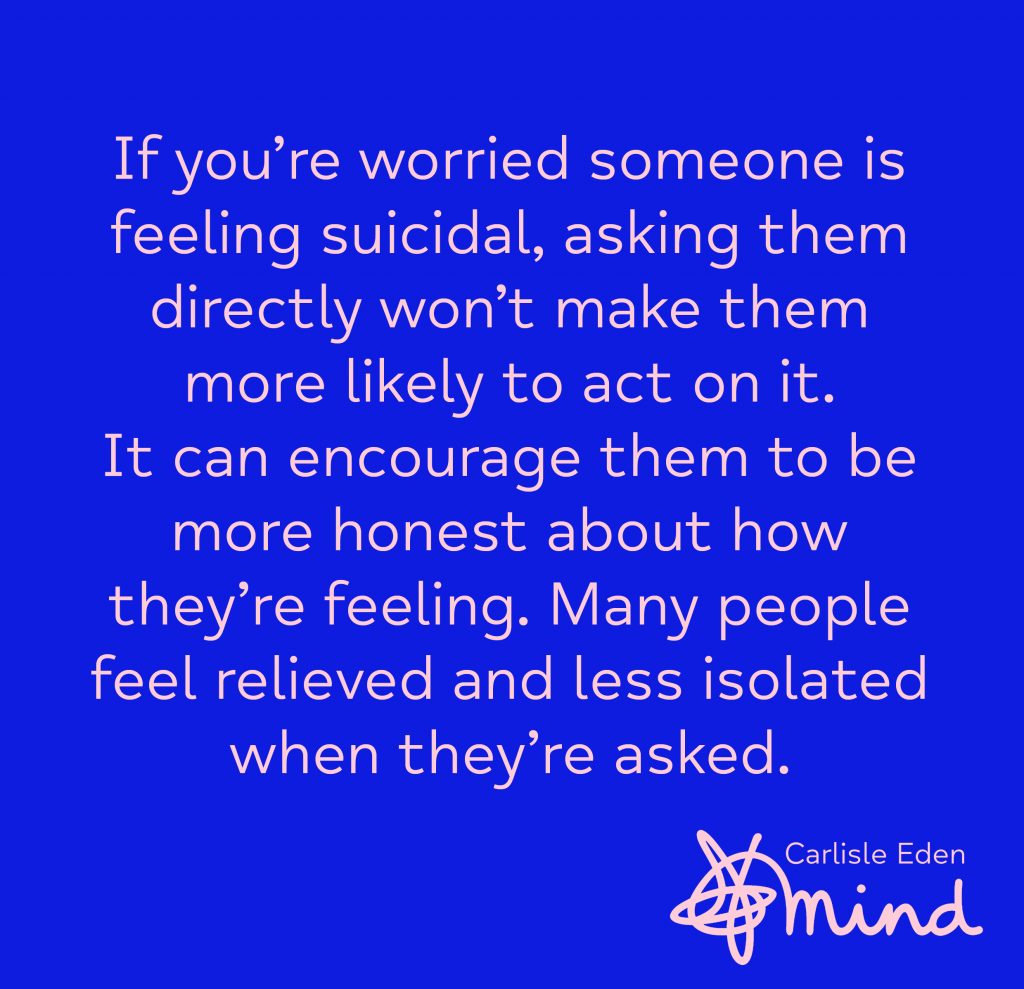
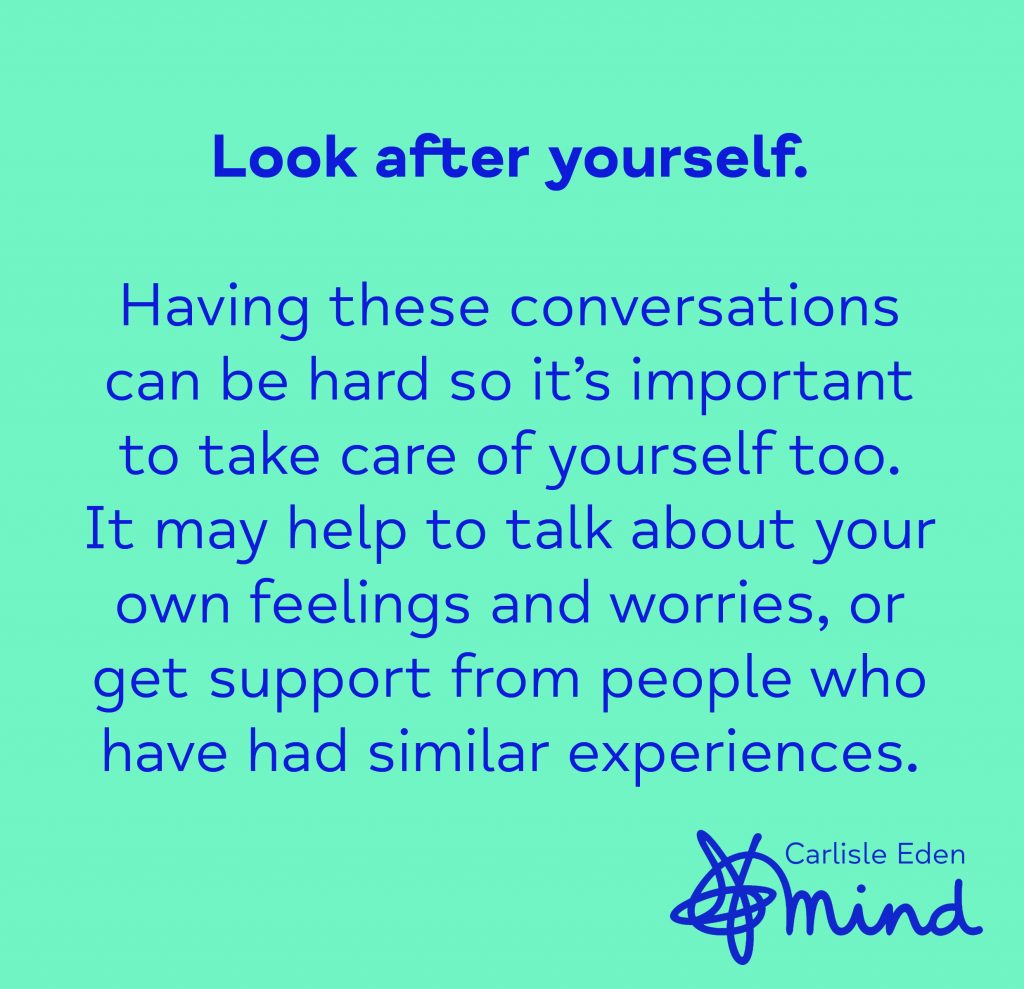
- Stay calm. Although you probably have a lot of difficult feelings of your own, if you can stay calm it can help to stop anger escalating.
- Try to listen to them. If you can, allow them time to communicate their feelings without judging them. Often when someone feels that they are being listened to, they are more able to hear other people’s points of view as well. And sometimes just being given permission to communicate angry feelings can be enough to help someone calm down.
- Give them space. If you notice that continuing the conversation is making it worse, give them space to calm down and think. This could be something like going into another room for a while or spending a few days apart. It’s important to give yourself space as well, so you don’t find yourself getting too angry.
- Set boundaries. While there are lots of reasons why this can be difficult, it’s important to set limits and boundaries. Be clear in advance about what sort of behaviour is and isn’t acceptable to you, and think about what action you can take if someone crosses the line. You don’t have to put up with any behaviour that makes you feel unsafe or seriously affects your own wellbeing.
- Help them identify their triggers. This is something you can try when you’re both feeling calm, away from any heated situation. Identifying someone’s triggers for anger can help you both think about ways you can avoid triggering situations, and plan how to handle them and how to communicate when they do arise. But try not to be judgemental, or accusatory. While it can be useful to give specific examples of when you remember them getting angry, be aware that this is probably upsetting for them to think about.
- Support them to seek professional help. For example, you could help them arrange to see their GP, or help research anger management courses. See the national Mind’s pages on treatments for anger and supporting someone to seek help for their mental health for more information.
- Look after your own wellbeing. It can be difficult at times to support someone else, so make sure you’re looking after your own wellbeing too.
What if they don’t recognise they have a problem?
You might find that the person you are supporting doesn’t recognise they have a problem and/or refuses to seek help.
It’s understandable to feel frustrated, distressed and powerless as a result of this. But it’s important to accept that they are an individual, and that there are always limits to what you can do to support another person.
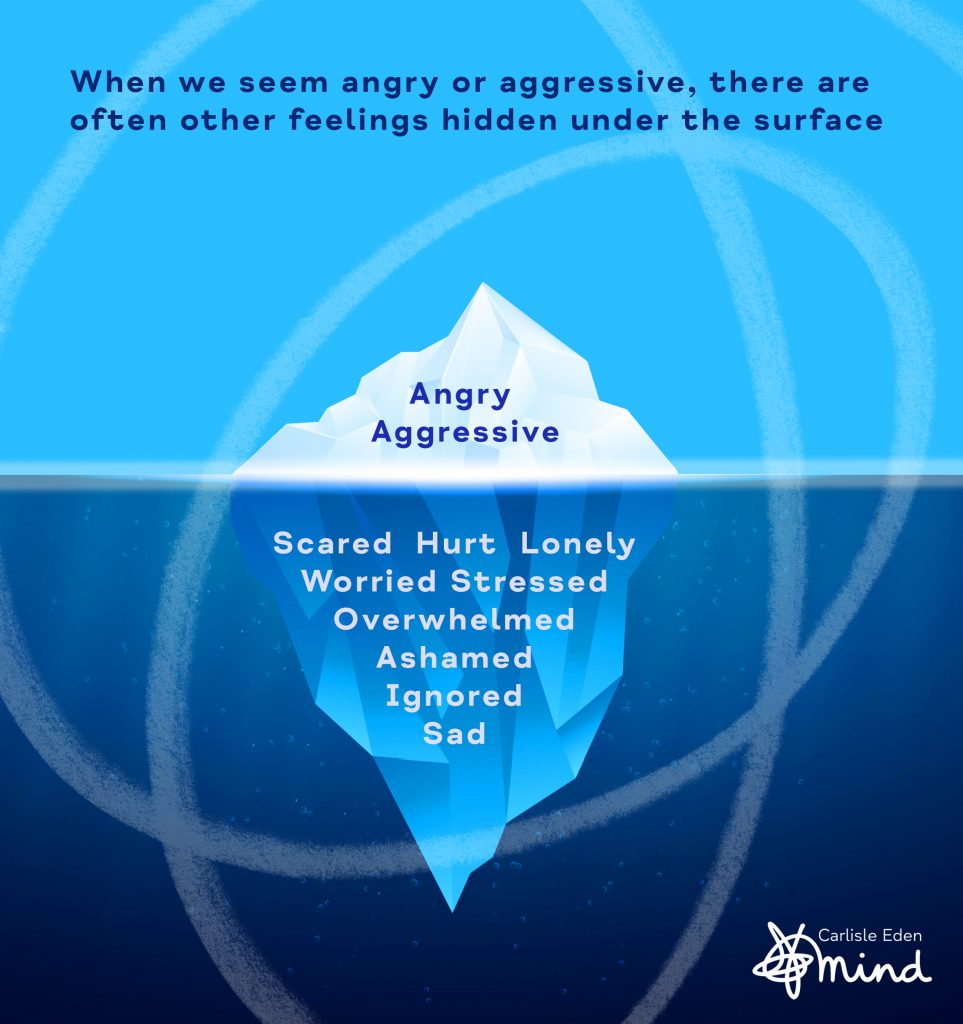
A person who seems very angry may also be feeling things like fear, stress, sadness, hurt or worry – or might be struggling to cope with a difficult experience at home or in another part of their life that they feel unable to talk about.
It can be helpful to remember that a person who’s feeling angry a lot of the time probably isn’t feeling very happy – and while it might not be obvious, what they often need is support. Supporting people to put their feelings into words can help them to feel less overwhelming, making it less likely that they will need to act out.
- Read our blog post on: How can I respond to my child when they get angry?

Are you worried about how someone else’s anger is affecting your mental health?
Does someone else’s anger affect your wellbeing? Are you having trouble focusing on daily tasks, perhaps you are having trouble sleeping? Have you thought about talking to our new confidential crisis support, You in Mind.
If you need to calm down, pause. Think of the consequences and try to rationalise the situation and put yourself in the other person’s shoes, this does not mean you have lost a battle, in fact you have won.
-Abbies Awareness Blog
Read Abbies new Awareness Blog post on anger:
Abbie’s Awareness Blog: Anger
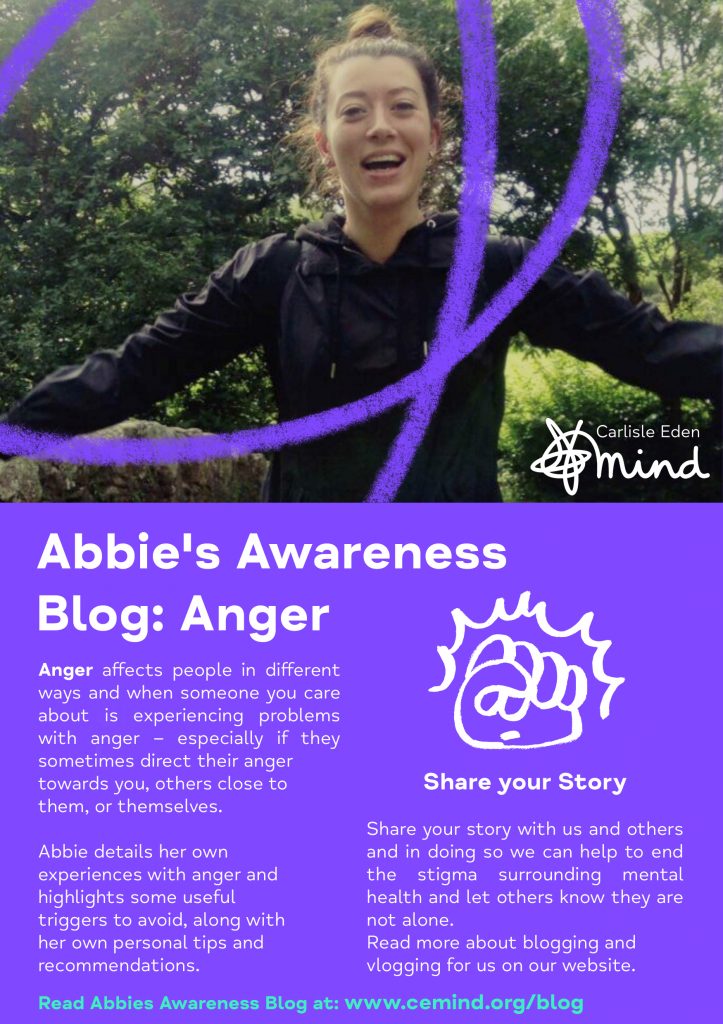
Read more of Abbie’s Awareness Blog here:

















